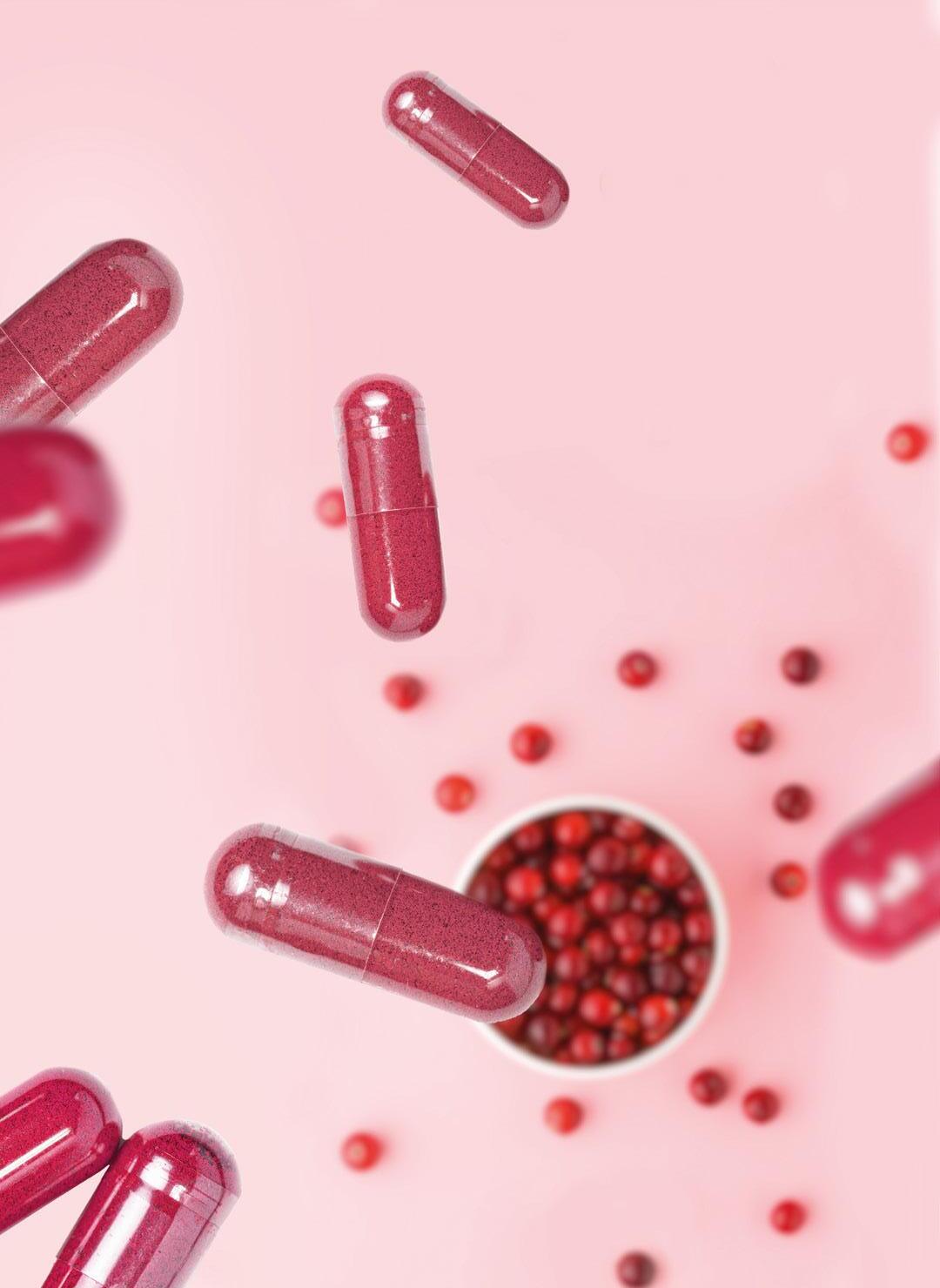
2 minute read
— Gut health and microbiota dysbiosis
It is widely recognized that diet is an essential determinant of health. The Western diet, characterized by high fat, high sugar, and low fiber content, is one of the major factors contributing to the etiology of societal chronic disorders.
It is now clear that this unhealthy diet impacts metabolic responses and causes perturbations in the host–microbiota community structure, i.e., dysbiosis. Such an imbalance of the gut microbiota has consequences on the intestinal barrier integrity such as alteration of the immunological function and increase of the permeability, also called “leaky gut”. Certain dietary constituents specifically shape the gut microbiota through a prebiotic action.
— The polyphenols, potential prebiotics?
Polyphenols are a good candidates for shaping the gut microbiota. Indeed, 90%–95% of dietary polyphenols reach the colon intact where they interact with the microbiota and are degraded to potential bioactive metabolites conferring health benefits.

— Prebiotic definition
The International Scientific Association for Probiotics and Prebiotics (ISAPP) consensus statement, published in Nature Reviews Gastroenterology & Hepatology, defines prebiotic as “a substrate that is selectively utilized by host microorganisms conferring a health benefit” and lists phenolic compounds as prebiotic good candidates. (Gibson et al., 2017)
* The figure shows candidate as well as accepted prebiotics in that levels of evidence currently vary, with FOS and GOS being the most researched prebiotics, and phenolics and phytochemicals components as good candidates.
CLA, conjugated linoleic acid; PUFA, polyunsaturated fatty acid; FOS, fructooligosaccharides; GOS, galactooligosaccharides; MOS, mannanoligosaccharide; XOS, xylooligosaccharide.
In 2018, Symrise supported, together with the Institute of Nutrition and Functional foods (INAF) and the Natural Science and Engineering Research Council of Canada (NSERC), the creation of a 5-year Industrial Partnership Chair on the potential prebiotic effects of fruit polyphenols.

This research program led by Pr. Yves Desjardins, has investigated how polyphenols can modulate the gut microbiome and affect the intestinal barrier function, the main cause of metabolic endotoxemia and low-grade inflammation associated with the onset of many chronic diseases.
— PrebiocranTM: A unique polyphenol-rich cranberry extract
Well known for its benefits in supporting urinary health, cranberry (Vaccinium macrocarpon) is a fruit originating from North America, traditionally used by Native Americans to relieve a variety of ailments.
Cranberries are high in polyphenols, supporting various health benefits of which urinary health but also cardiometabolic health or antioxidant properties.
— Cranberry expertise
Symrise has a long history in the processing and extraction of cranberry polyphenols. Thanks to its dedicated extraction facility located in the Quebec province of Canada, in the heart of the cranberry production area, Symrise has a unique access to local cranberry farmers and carefully selects the most concentrated in polyphenols varieties.

— Prebiocran™ phenolic composition
Prebiocran™ is an ingredient obtained by extracting the natural phenolic compounds of cranberries. It has been designed to offer all the variety of polyphenols that are present in the cranberry fruit. It is standardized to feature no less than 30% total polyphenols (Folin-Ciocalteu method).
Phenolic acids Anthocyanins
Flavonols Flavan-3-ols





